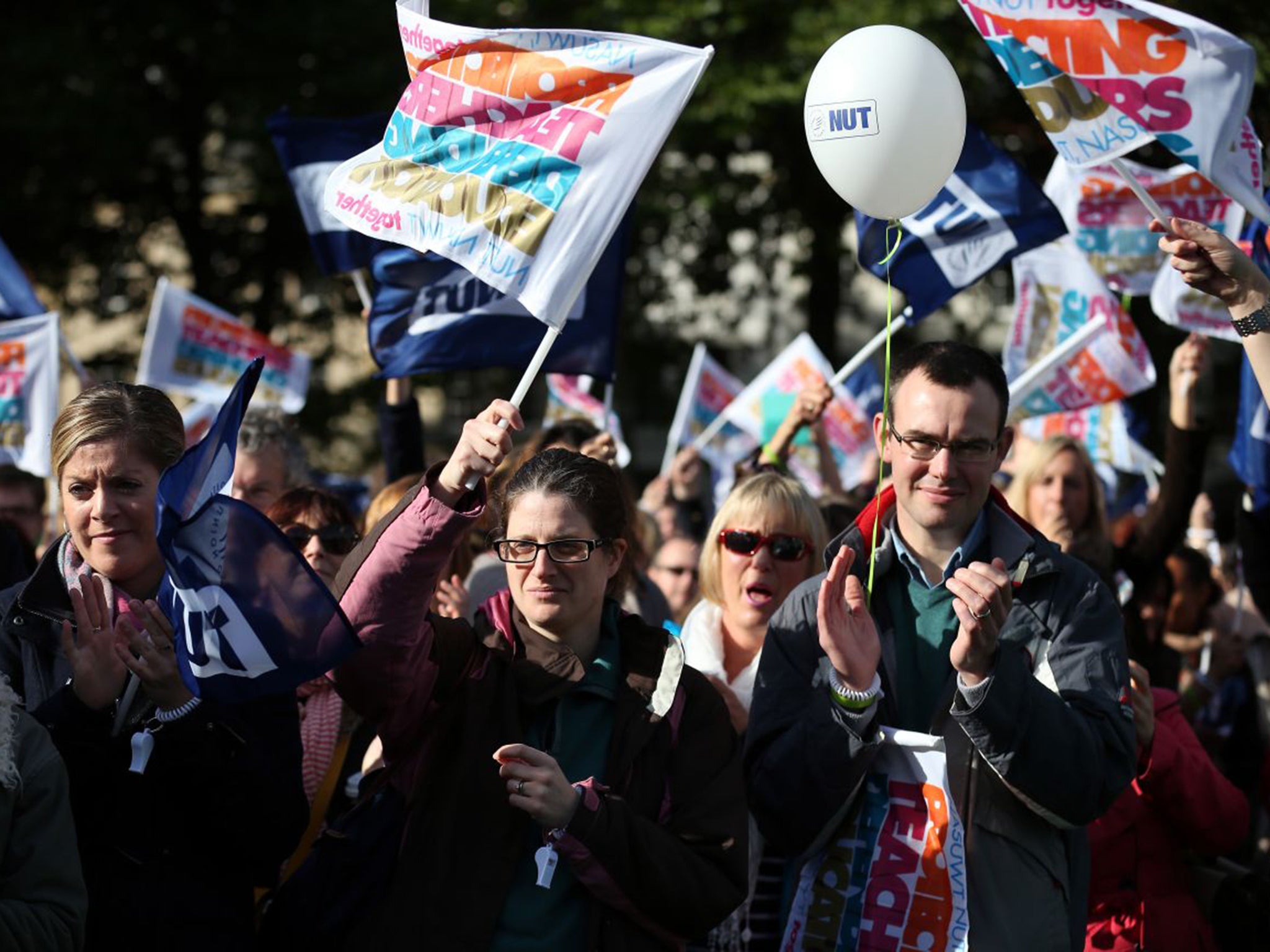Your support helps us to tell the story
From reproductive rights to climate change to Big Tech, The Independent is on the ground when the story is developing. Whether it's investigating the financials of Elon Musk's pro-Trump PAC or producing our latest documentary, 'The A Word', which shines a light on the American women fighting for reproductive rights, we know how important it is to parse out the facts from the messaging.
At such a critical moment in US history, we need reporters on the ground. Your donation allows us to keep sending journalists to speak to both sides of the story.
The Independent is trusted by Americans across the entire political spectrum. And unlike many other quality news outlets, we choose not to lock Americans out of our reporting and analysis with paywalls. We believe quality journalism should be available to everyone, paid for by those who can afford it.
Your support makes all the difference.Laws banning workers from going on strike in support of colleagues in other workplaces should be repealed, Jeremy Corbyn has said.
Margaret Thatcher’s Employment Act 1980 banned so-called “sympathy strikes” and restricted workers to walking out only out if they had a direct grievance against their own employer.
In an interview with the BBC’s Andrew Marr Show, Mr Corbyn however said he would repeal the rules.
“Sympathy action is legal in most other country and I think it should be legal here,” Mr Corbyn told the programme.
Asked directly whether he would commit to repealing the law in government, he said: “Yes, of course. Nobody willingly goes on strike – it’s an ultimate weapon. Anyone who goes on strikes is making a sacrifice, they don’t get paid.
“I think we have to look at the question not of what trade unions are forced to do ultimately, but the causes of the problems in the first place.
“Who would have thought the BMA, for the first time in 40 years, would be taking industrial action?”
The Labour leader said he would leave closed trade union shops illegal, however.
The comments come after polls showing high public support for a programme of strikes by NHS junior doctors in protest of a new contract proposed by the Government.
On BBC 5Live's Pienaar's Politics programme Unite general secretary Len McLusky described Mr Corbyn's commitment as "absolutely first class".
Sympathy strikes are legal in most democratic countries but are restricted in the UK and other Anglophone countries including the US and Australia.
The strikes were banned after the general strike but were legalised by Clement Attlee’s post-war Labour government and left in place until the election of Mrs Thatcher as Prime Minister.
The Conservatives have said they will introduce more rules to make it more difficult for workers to go on strike. The party’s manifesto included planned turnout thresholds in strike ballots and changes to the way political funds can be used.

Join our commenting forum
Join thought-provoking conversations, follow other Independent readers and see their replies
Comments